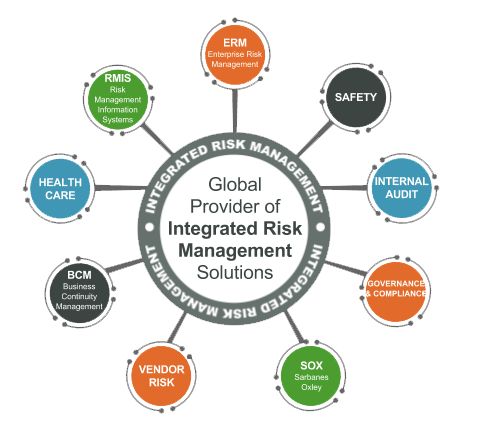Introduction
Integrated risk management (IRM) is the process of identifying, assessing, and mitigating risks that could affect an organization. It involves a holistic approach that considers both internal and external factors that could impact an organization’s objectives. In this article, we’ll provide an overview of IRM and why it’s important for businesses.
What is IRM?
IRM is an approach to risk management that aims to integrate all of an organization’s risk management processes. This includes identifying, assessing, and mitigating risks from all areas of the business, including operations, finance, compliance, IT, and cybersecurity. IRM involves a comprehensive and coordinated approach to risk management that considers the relationships between different risks and the impact they could have on the organization.
Why is IRM important?
IRM is important for businesses because it helps to strengthen their risk management processes by providing a more complete view of the risks they face. By taking an integrated approach, businesses can identify and mitigate risks before they become major issues. This can help to reduce the likelihood of losses and improve overall business performance.
Benefits of IRM
There are several benefits of IRM that businesses can take advantage of. These include:
– Holistic approach to risk management
– Improved risk identification and mitigation
– Reduced likelihood of losses
– Improved business performance
– Better compliance with regulations and standards
Key components of IRM
There are four key components of IRM that businesses need to consider:
– Risk identification
– Risk assessment
– Risk mitigation
– Risk monitoring and reporting
These components should be integrated into a comprehensive risk management framework that is tailored to the specific needs of the organization.
Implementing an IRM program
Implementing an IRM program requires a structured approach. The first step is to identify all of the risks that the organization faces. This should include risks from all areas of the business, including operations, finance, compliance, IT, and cybersecurity. Once risks have been identified, they should be assessed in terms of likelihood and impact. Based on this assessment, the organization can then develop a risk mitigation plan. Finally, the organization should monitor and report on risks to ensure that the risk management framework is effective.
Challenges of IRM
IRM can be challenging to implement, particularly for larger organizations. Some of the key challenges include:
– Lack of resources
– Lack of understanding of the benefits of IRM
– Resistance to change
– Difficulty in integrating risk management processes across the organization
To overcome these challenges, it’s important for organizations to take a structured and holistic approach to IRM.
You might find these FREE courses useful
- Create a Project Management Dashboard
- Top Project Management: The Basics For Success
- Top Project Management: Life Cycle And Project
- Top Project Management Certification Google Courses
- Top Project Management Courses – Learn Project
- Top Project Management Principles And Practices
Conclusion
Integrated risk management is an important approach to risk management that can help businesses to identify, assess, and mitigate risks from all areas of the business. By taking a holistic approach, businesses can improve their risk management processes, reduce the likelihood of losses, and improve overall business performance. While implementing an IRM program can be challenging, the benefits are clear and can help organizations to stay ahead of risks and threats.
